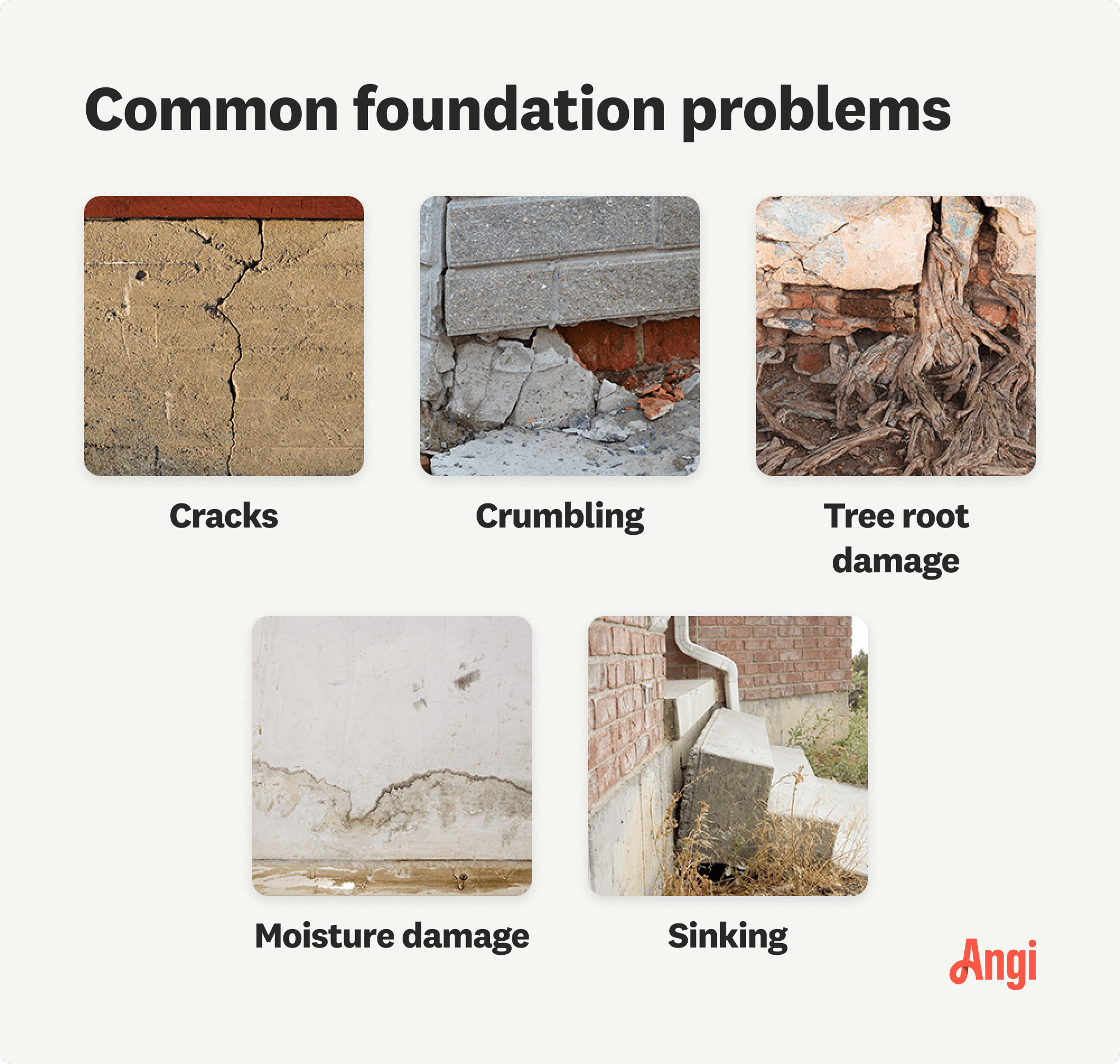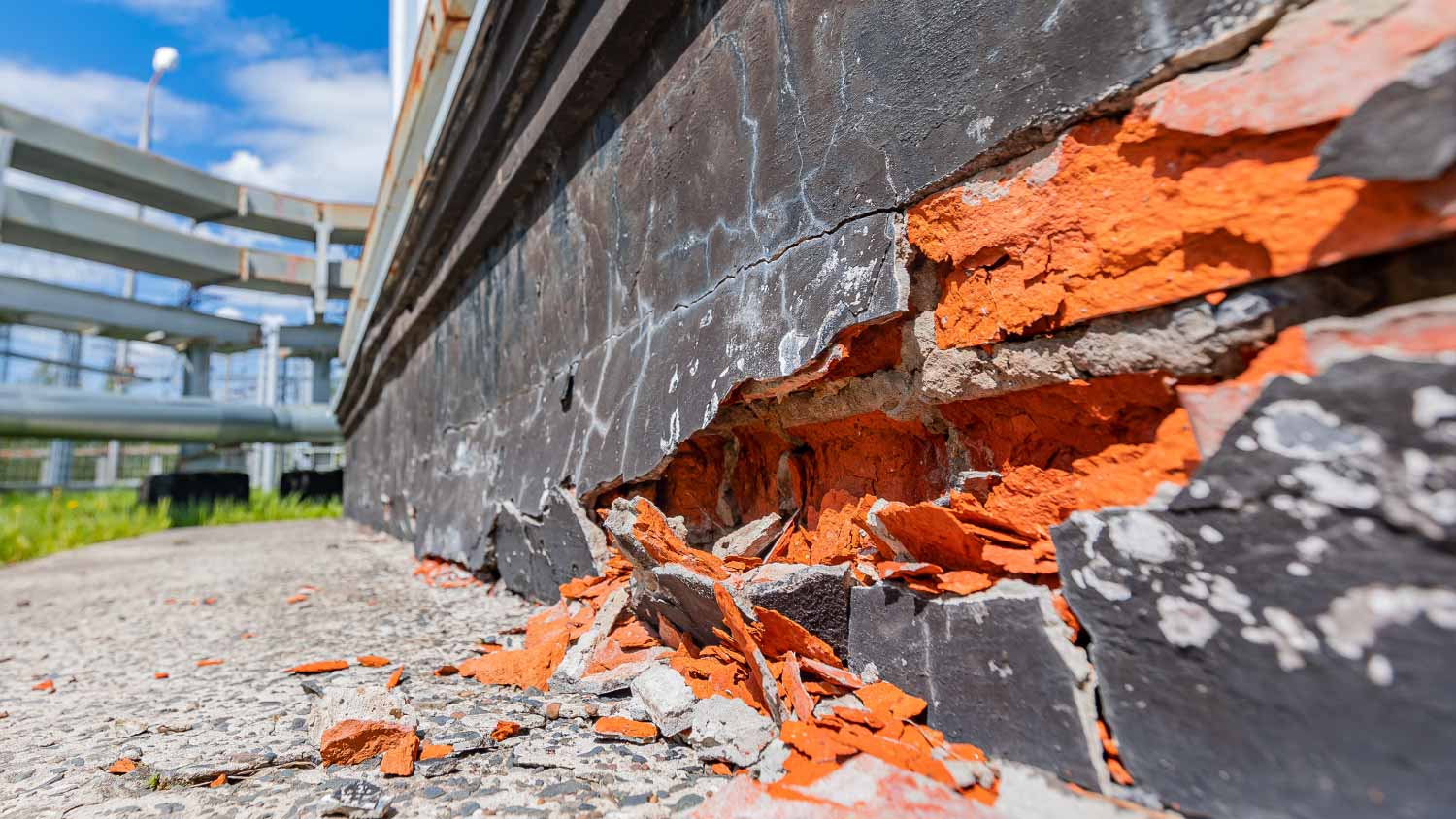How Long Does Foundation Repair Take?
Find out if you need to set aside a few hours or a few days to fix your foundation


Foundation repair time depends on the extent of the damage and how difficult it is to access the damaged area.
Some repairs may require you to vacate your home during the repair process.
Weather, landscaping, and excavation may extend the repair timeline.
When you discover damage to your house’s foundation, you should fix it quickly to avoid safety risks and structural instability. Repairing a foundation isn’t always a quick job, though, and complex damage can take longer to fix than simple repairs. Learn how long to expect foundation repairs to take and what factors can affect repair time.
What’s the Average Time for Foundation Repair?
Many foundation repairs can be completed within two to three days. Minor repairs like crack sealing can take as little as one day, while complex repairs that require excavation and pier installation may take a week or more. A local foundation repair contractor can assess the scope of your foundation damage and give you an accurate repair timeline.

Factors That Affect Foundation Repair Time

A foundation repair timeline can depend on the specifics of the damage and the foundation repair methods needed to fix it.
Extent of Damage
Minor damage like small cracks or slight settling can often be repaired in one day, but anything more extensive will take additional time to fix. Serious damage—including large cracks, significant shifting, or crumbling—will extend the repair time to several days or more. Repairs that require pouring concrete piers to stabilize your home and then excavating around the repair site may take several weeks to complete and may mean you can’t stay in your house during foundation repair.
Environmental Factors
If your foundation damage is due to tree roots, extensive soil erosion, or other landscape factors, additional equipment and professionals may need to be brought in to fix the root cause of the damage, which will add time to your repair. The weather can also affect your repair timing—some repairs can’t be completed in freezing temperatures or rainy conditions.
Underlying Causes
If your foundation damage was caused by a plumbing leak, termite activity, or other underlying problems, your repair may take longer so those issues can be addressed before fixing the foundation.
Code and Permitting Requirements
Many areas have strict requirements when it comes to foundation work, and dealing with the steps needed to make sure the work is up to code can add time to the repair. You may need a permit for foundation repairs before getting started—your contractor can secure the permit, but it’ll take some time, and work can’t begin until you have the permit.
You may also be required to have a foundation inspection once the work is completed, so you’ll have to work around the inspector’s schedule, which could slow down the process.
Signs Your Foundation Needs Repair
Foundation problems won’t always be obvious, but it’s important to identify and repair issues early on to prevent time-consuming and expensive large repairs if the problem persists. Some signs to look for that may indicate foundation damage include:
Interior wall, ceiling, or floor cracks
Uneven roofline
Sagging or bouncy floors
Sticking doors and windows
Drainage and moisture problems
Bowed walls
Chimney issues like cracks or leaning
If you notice any of these signs, call a foundation repair contractor right away to identify and fix any foundation damage before it gets worse.
Frequently Asked Questions
Foundation problems will likely get worse over time if they aren’t repaired. As foundation problems progress, your home may experience signs of structural damage, water damage, and health and safety risks—all of which will only get more expensive to fix the longer you wait. Repair foundation problems as soon as you’re aware of them to avoid complex and expensive remediation in the future.
It’s usually not an immediate safety risk to live in a house with foundation problems, but you don’t want to let those problems persist. Most foundation issues don’t lead to a house’s sudden collapse, but they can lead to health issues like mold growth and pest intrusion, as well as problems like uneven floors or rotten beams and joists, which can pose injury risks and be costly to fix.





- Who to Call to Repair Foundation Issues
- 11 Warning Signs of Foundation Issues
- 10 Reasons You Really Shouldn't Delay Foundation Repairs
- What a Foundation Inspection Is and How to Check Yours
- Your Guide to Dealing With Foundation Drain Issues
- 6 Sinking Foundation Signs and What to Do Next
- How to Hire a Foundation Repair Contractor
- Does Homeowners Insurance Cover Foundation Repair? Not Always—How to Know if You’re Covered
- How to Know When to Walk Away From Foundation Issues
- 8 Common Causes of Foundation Cracks










